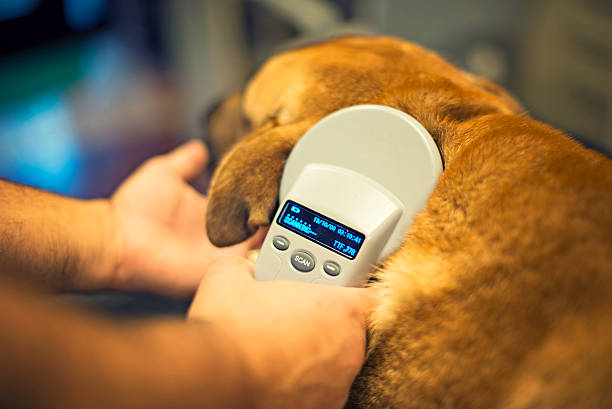At a time when Autism rates are rising, it’s crucial to discover new techniques to help children affected by the condition. One such potent method is dog therapy. Studies show that dogs have a calming effect on children with Autism, decreasing their stress levels by as much as 40%. The positive effects were even more noticeable when their caregiver was present during the therapy session.
Dogs Can Help Children with Autism


Dogs can help children with Autism. The benefits of using dogs to help autistic children are well documented. One study found that the dog owners reported their child’s anxiety levels were 40% lower than those who owned a pet but did not have a dog. Interestingly enough, the positive effects of this therapy were found to be most pronounced when the caregiver was also present.
One study in the journal Anthrozoos found that dogs can be particularly beneficial when a child with Autism has a meltdown. Dogs are less likely to yell at the upset child, and they are much better at picking up on social cues that indicate when their owner needs help calming down or when their owner might need some space.
Dogs are very good at giving their owners space when needed and will approach them less threateningly if the child is attacked.
This therapy can also be helpful when teaching children with Autism how to read facial cues or talk with other people. When teaching these skills, having the dog in the room allows children to practice with another being who can provide positive and negative feedback.
One of the significant barriers to getting children with Autism to interact socially is the fear that they will be mocked or criticized for their behaviour. Especially in adolescents, this fear can become so strong that it prevents them from doing things that most children find pleasurable, like going out to eat with their families.
When kids are influenced by dogs, who will never judge them harshly or laugh at them, they are much more likely to feel like engaging in these activities is safe and enjoyable.
Beagles help children with Autism learn to read facial cues and how to interact socially. It can be difficult for children with Autism to figure out what other people are feeling or thinking, leading to extreme anxiety and withdrawal. With assistance from a dog who will give clear feedback about what the child is doing and how it affects their behaviour, children with Autism can learn to read facial cues and communicate more effectively with others.
When reading facial cues, dogs will look at someone’s face for a few seconds and then look away when they have all the necessary information. A dog can help children with Autism learn to better pick up on social cues from other people. This skill allows a child to read facial expressions in real-time and react accordingly. If a child learns to do this, it can help them be more successful socially and reduce anxiety.
It is important to note that dogs can also make children with Autism withdraw even further if not used properly. If a child is not ready for interaction or does not feel comfortable reading facial cues yet, the presence of a dog may make them uncomfortable. This is why it is essential for parents and therapists to always ask whether or not a child wants to interact with the dog before initiating any activity.
Dogs Have a Calming Effect on Kids With Autism


Dogs have been found to have a calming effect on children with Autism. Studies show that kids with Autism who live with a dog experience significantly lower anxiety rates than those without. It’s likely the presence of the caregiver and the animal itself that makes such a difference–now we know why pets are considered great therapy animals!
Interesting Facts About Dogs and Their Relationship with Children
Dogs are beneficial for children with Autism. Dogs provide a calming effect on kids with Autism, and it has been found that children trained with dogs experience lower levels of anxiety than those without dogs. So if you’re considering getting a dog to help your child, the benefits are clear!
Dog Breeds for Autistic Children
Researchers are working to understand the relationship between dog breeds and Autism, a debilitating condition for many children. Autism Speaks released a list of dog breeds generally considered “good matches” for autistic children. They include:
- Labradors
- Golden Retrievers
- Siberian Huskies
- Standard Poodles
- German Shepherds
- Bernese Mountain Dogs
- St. Bernards
- Belgian Malinois
Breeds like poodles and Pomeranians tend to be hypoallergenic. Children should not have an allergic reaction or asthma attack before getting a dog because of their breed, so parents should research what breeds are best for their situation.


How to Find a Dog for an Autistic Child
You don’t want to get just any dog for your autistic child. It would help if you had a companion with which you could be calm and patient, so you want an affectionate and gentle dog. Your autistic kid may also have special needs in terms of diet, so you’ll want a food-motivated breed.
Many experts recommend Labradoodles because they are intelligent, easy to train, low-shedding, not skittish or yappy, and they get along well with kids and other pets. They’re also hypoallergenic, which is vital for people with allergies. In addition to being great therapy dogs, many families who had a positive experience with one labradoodle have chosen to get another one as a pet!
However, like any dog, Labradoodles need the training to ensure they’re not destructive and keep them from jumping on people. They also love the great outdoors; you’ll need to be able to accommodate that need for your kid.
Some other options to research are poodles (also hypoallergenic) and corgis.


How Do Dogs Help Children with Autism?
When your child is around a dog, he’ll be able to bond more easily by petting the dog and learning to care for another creature. Dogs can also improve your child’s trust-building skills (which are vital to their development) by giving them structure and a sense of control.
In addition to these social benefits, dogs may also help your child with sensory issues. If your child is susceptible to noise or has trouble with various textures, for example, getting a dog will expose him to those things in much smaller doses than he would experience if they were alone.
Conclusion
Dogs can be a great tool to help children with Autism learn how to socialize. Dogs have been found to calm anxiety levels in kids, and they also provide an opportunity for your child to practice skills crucial for their development, such as trust-building or sensory issues. In addition, dogs may serve as therapy animals because of the calming effect on autistic patients.
If you’re considering getting a dog for your unique needs child, it’s essential to do some research about what breeds might work best given your situation. Some good options include Labradoodles (hypoallergenic), poodles (hypoallergenic) and corgis, who tend not to jump up at people, which is helpful if your child is sensitive to that. However, choosing a dog that’s right for your family and child is essential based on their particular needs.


